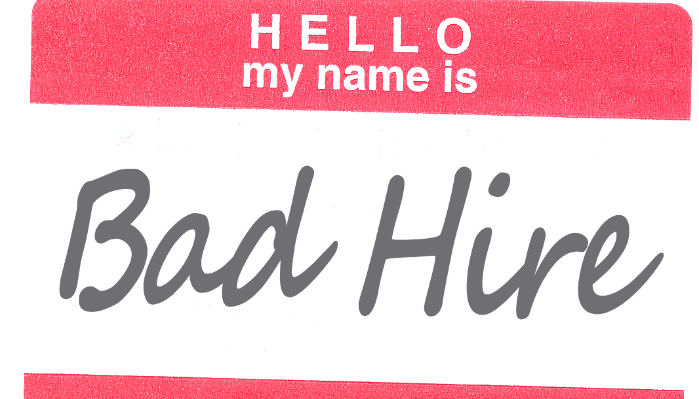Every hiring manager wants to know that the candidates they hire work out well in their various positions. It is always a possibility that a hiring manager will bring on a bad hire. However, it is also important to know what constitutes an actual bad hire. Keep reading to learn why bad hires occur and how to differentiate between a bad hire and one who simply works differently than you.
Enjoy!
Identifying the Source of Bad Hires
After all of the work of interviewing and on-boarding, it is disappointing when faced with a bad hire. Sometimes bad hires are not easy to identify until months into their tenure. Many times the bad hire is a result of the hiring manager, not the team member.
When faced with a new hire that has been properly on-boarded and trained in your organization’s processes and procedures, but is not living up to their potential as identified in the hiring process, it can be hard to decide whether or not they are a good fit. There are three main identifiers to help you determine if this person is the right fit for the role and organization as a whole. It is important to analyze these identifiers early. That way, if the person is not a great fit, you can restart the hiring process quickly.
The three main identifiers are:
Quality of work – Are they meeting deadlines? Is their work up to company standards?
Ability to work with others – Are they working well with their mentors and colleagues?
Attitude – Do they have a poor attitude? Has their attitude changed since they have started?
Hiring managers can be a main contributor to making bad hires. The biggest mistake hiring managers can make is hiring someone like themselves. It is important to be able to get along with your colleagues, but you do not need to be their best friend.
Other times bad hires occur before the hiring process begins. When organizations are not looking at the entire corporate life cycle, it can be difficult to determine what problem the new hire is to solve. It is nearly impossible to hire the right person for the role if the purpose of the role is unknown.
Hiring someone who is not able to grow with the company or hiring too many thinkers, instead of producers, is a recipe for hiring disaster. Every organization needs a balance of these two types of individuals, regardless of the industry.
In many industries and roles, hiring someone with 70% of the technical skills and background and then training for the remaining 30% works well. However, some roles require 90 to 100% of the skills. If an organization does not properly identify those highly specialized roles, hiring managers can fall into the trap of thinking that they can train for the deficit.
Finally, as technology changes the way we work, some hiring managers may feel that they have made a bad hire if the new team member is not working as hard or as many hours as their colleagues. Everyone works at different paces and it is important to understand that hours worked does not equate effort. Instead of looking at how long someone is toiling at their desk, look for productivity and innovation.
Bad hires are frustrating for both the hiring manager and the new hire.
Identifying where you went astray can help in future hiring efforts…
Have you lost a great candidate recently to a counter-offer? Maybe you lost them to a competing offer? The competition for exceptional talent is at a fever pitch right now. If your interview funnel has been less than satisfactory and your pool of qualified talent is drying up I invite you to a complimentary consultation on how to attract great talent on a consistent basis AND how to procure them so you don’t lose them to competing offers. Reply to this email to schedule. I promise that in our call together you will leave with 2 or 3 ideas that will greatly impact your ability to find, attract, and procure the top 10-15% of the candidate pool on a consistent basis.
Vincent Scaramuzzo is the President of Ed-Exec, Inc. A leading Education Executive Search Firm. He is also a contributing author to various education publications. As a specialist in the education field for over a decade, Scaramuzzo works nationally. He can be contacted at vincent@ed-exec.com 860-781-7641.
*Not all articles and blogs are original works of Vincent Scaramuzzo or Ed-Exec, Inc.*
